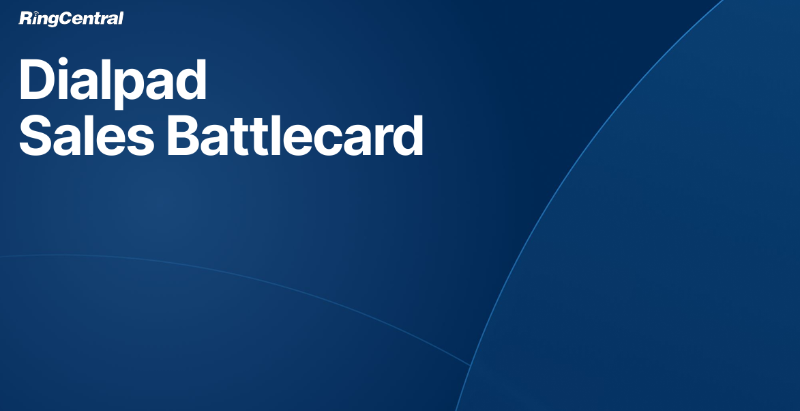Comparing UCaaS Solutions: Dialpad vs. RingCentral
Published on 12 Dec 2024

Unified Communications as a Service (UCaaS) platforms are essential for businesses seeking seamless collaboration. However, choosing the right platform can be challenging. Dialpad and RingCentral are two prominent options—how do they stack up?
Overcoming UCaaS Challenges
- AI Capabilities: While Dialpad offers AI-powered voice transcription, it lacks compliance with two-party consent laws in some states. In contrast, RingCentral's AI features, such as RingSense and live transcription, are integrated at no additional cost.
- Limited Functionality: Dialpad supports only up to 10 video participants and a maximum meeting duration of 5 hours, whereas RingCentral accommodates up to 200 participants with a 24-hour duration limit.
- Security Gaps: Dialpad lacks End-to-End Encryption (E2EE) for meetings and calls, a standard feature in RingCentral’s offerings.
What Makes RingCentral Stand Out?
Unmatched Reliability
RingCentral delivers a carrier-grade 99.999% SLA, equating to just 78 seconds of downtime per quarter. Dialpad’s SLA, reduced to 99.9%, highlights significant reliability concerns.
Advanced Features
From whiteboarding and remote desktop control to comprehensive analytics, RingCentral offers robust tools to enhance productivity—capabilities Dialpad does not provide.
Enhanced Integrations
With 300+ pre-built integrations, including Microsoft Teams, RingCentral’s platform is built for scalability and ease of use. Dialpad’s integration capabilities are comparatively limited.
Take the Next Step
Discover the full capabilities and key differentiators between Dialpad and RingCentral to ensure you select the UCaaS platform that aligns with your business goals.
Download now to read more and unlock detailed insights to make an informed decision.
You May Also Like: The Ultimate Guide to Choosing the Right UCaaS Solution
